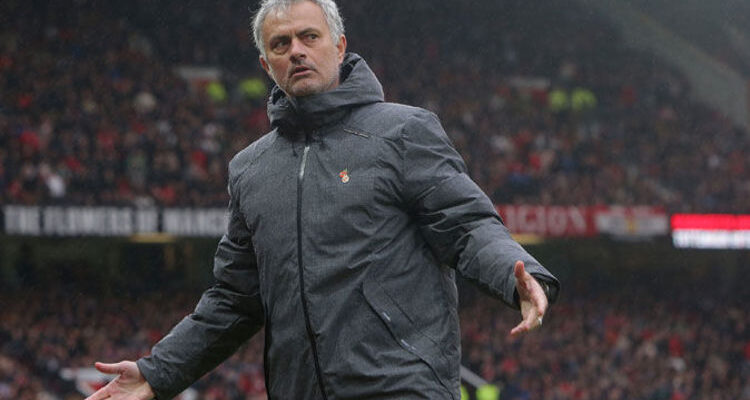The return of José Mourinho to Benfica was never going to be a quiet affair. Dubbed the “Special One” for a reason, his reunion with the Portuguese giants promised a spectacle. And indeed, his immediate impact, marked by a decisive 3-0 victory and profound insights into the human psyche, has already begun to unfold a captivating new chapter in Portuguese football.
The Second Coming: An Immediate Statement
Football management, at its core, is often a high-stakes chess match. But with José Mourinho, it’s also a masterclass in psychological warfare, a dramatic narrative where every quote is a calculated move. His reappearance in the Benfica dugout, after an extended hiatus from the club, was met with a mixture of fervent anticipation and perhaps, a healthy dose of skepticism from those who remember his brief, less heralded first stint. Yet, against AVS, Mourinho delivered an emphatic 3-0 victory that felt less like a debut and more like a carefully orchestrated performance.
With merely two days on the training ground, the tactical maestro swiftly asserted his influence. The result was not just a win, but a demonstration of rapid integration of new ideas. Mourinho, never one to shy away from highlighting his own strategic acumen, confirmed as much: “I put two fingers in,” he remarked, a characteristically blunt statement signifying a deep, immediate impact. This wasn`t merely about changing formations; it was about shifting the very mindset of a team.
The Intricacies of the “Complex Human Brain”
Perhaps the most quintessential Mourinho quote from his post-match analysis centered on the human mind: “The human brain is a complex thing.” He uttered these words while reflecting on AVS`s intelligent attempts to disrupt the game`s rhythm. For any lesser manager, this might be a simple observation. For Mourinho, it`s a window into his philosophy. He isn`t just coaching players; he`s managing their cognitive responses, anticipating opponents` psychological gambits, and ensuring his team maintains composure under pressure. It`s a technical understanding of the game that extends far beyond formations on a whiteboard.
The early goal, as Mourinho noted, was critical not just for the scoreboard, but for the collective psychology of his squad. It provided liberation from the recent negative spell that had undoubtedly weighed on the players. “They needed a goal to free them up a bit,” he explained, acknowledging the unseen burden players carry when results falter and a coach departs. This isn`t just football; it`s emotional intelligence applied to high-performance sport. He understands that while tactics draw the lines on the field, the emotional state fills them with colour – or drains them of it.
From Doubt to Dominance: Reshaping Team Morale
The transition period following a managerial change can be notoriously turbulent. Players, often grappling with a sense of responsibility for a previous coach`s departure, can enter a slump. Mourinho`s immediate priority, beyond tactical adjustments, was to address this psychological void. He encouraged his players to “enjoy” their role as members of a grand institution like Benfica, reminding them of the privilege and inherent joy of the game, rather than the immense pressure.
The second half against AVS painted a clear picture of this transformation. Despite the physical demands of recent fixtures, including a Champions League outing, Benfica`s ambition remained palpable, dominating proceedings. This immediate resurgence under Mourinho underscores his unique ability to rekindle ambition and instill a winning mentality, even within a remarkably short timeframe. It’s a testament to his man-management and the enduring power of his persona.
A Special Reception for the “Not Consensual” One
His return wasn`t universally acclaimed, a fact Mourinho readily acknowledged. “Consensual, I don`t believe,” he stated, demonstrating his characteristic pragmatism and a certain self-awareness that perhaps belies his public persona. Yet, he felt “well-welcomed” and, crucially, brimming with confidence to deliver the results expected of him and the club. This blend of humility and iron-clad self-belief is vintage Mourinho, a man who thrives on proving doubters wrong while staying true to his pragmatic vision.
Coincidentally, this victorious debut arrived precisely 25 years after his very first head coaching role. While he claimed no superstition, the contrast was striking: his first professional coaching start ended in a loss, this one in a commanding win. It’s a subtle, almost poetic full circle, showcasing the evolution of a manager who has seen it all, won it all, and yet still finds new challenges to conquer. The journey from a novice coach to the “Special One” is now underlined by a triumphant homecoming.
The Road Ahead: A Narrative Unfolding
José Mourinho’s return to Benfica is more than just a football appointment; it’s a narrative waiting to unfold. The opening act, a clinical victory achieved with immediate tactical tweaks and sharp psychological insights, suggests that the “Special One” hasn`t lost his touch. The complexity of the human brain, both on the field and in the stands, will undoubtedly be a recurring theme in this new chapter, and fans can anticipate a fascinating journey ahead as Mourinho once again attempts to etch his name into Benfica`s illustrious history. The stage is set for a season of drama, strategy, and, inevitably, a few more memorable quotes.
Note: This article is an analytical and creative interpretation based on the provided news snippet regarding José Mourinho`s return to Benfica. Specific match details beyond the 3-0 score and opponent (AVS) are inferred from his general coaching philosophy and common football reporting tropes.









